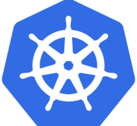Is Kubernetes Finally Entering Its Application Phase?
Source:-containerjournal.com Kubernetes as Infrastructure The last five years have seen Kubernetes grow from a new open source community to a mainstay of conversations about modern enterprise IT. But it’s fair to say those conversations are often centered around Kubernetes as an infrastructure platform. We talk about networks and load balancing, storage and standards such as CSI, and provisioning and cloud provider integrations. These conversations are critical to building a platform that can run a wide variety of applications successfully at
Read more


















